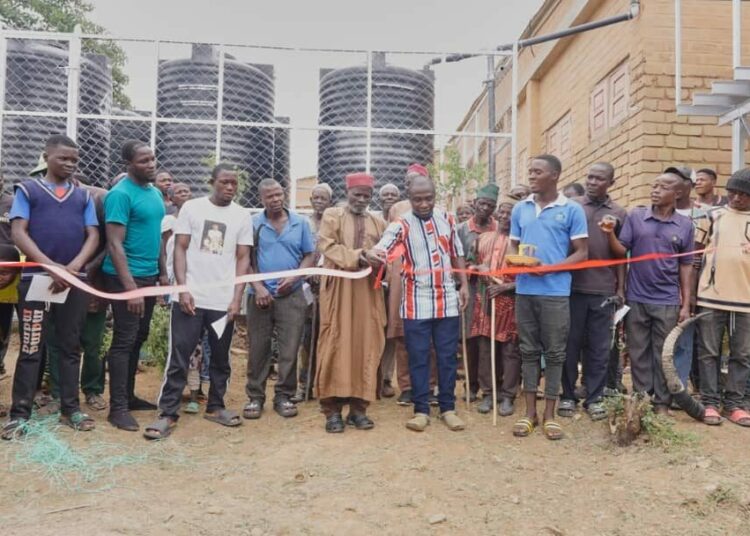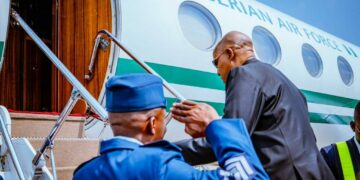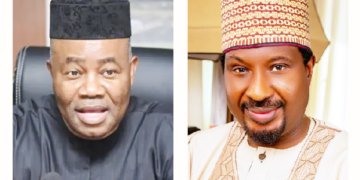On Monday, August 25, 2025, the quiet hills of Kofyar in Qua’an Pan local government area of Plateau State stirred with a celebration unlike any in living memory.
For generations, this resilient community perched on the rocky slopes of the Meryang Mountains endured the agony of thirst, surviving without a steady source of water. Livestock died during the dry months, children missed school to trek long distances to fetch water from streams, and women bore the crushing burden of fetching water under a blazing sun. That suffering met its end when the rainwater harvesting and storage project, funded by Gerda Henkel Stiftung of Germany and implemented by the Vernacular Heritage Initiative (VHI) under the leadership of Dr. Obafemi Olukoya, was commissioned amid songs, dancing, and tears of relief.
By 10 o’clock, the compound of Kofyar Community Centre was alive with colour and culture. Drummers filled the air with the pulse of Kofyar tradition as dancers welcomed guests from near and far, including representatives from Pangkurum, Longsel, and other neighbouring villages who will also benefit from the water system. The crowd waited with anticipation as the Long Kofyar, Chief John Datok, whose smile hinted at the weight lifted from his people’s shoulders. “We have waited too long for this day,” an elderly woman whispered to a reporter as she adjusted her wrapper and clutched her grandchild close.
When the formal proceedings began, Dr. Obafemi Olukoya’s message was delivered. The message recalled the early days of the project in December 2024, when optimism was tempered by the sheer challenge of the terrain. His message read: “This was never just about providing water,” it is about restoring dignity and sustaining life. This community showed the world what resilience means. Women and children carried pipes and tanks up these hills with their own hands. This project stands because of you.”
These words read by Dr. Ade Okopi of Vernacular Heritage Initiative (VHI) drew cheers and nods, for everyone present knew the truth of that statement.
One after another, voices rose to give thanks. Mr. Simon Dachin, his face streaked with emotion, told of years spent carrying heavy containers uphill. “We have carried water and hope for too long,” he said. “But now, our children will fetch water in minutes, not miles.” Representatives from Pangkurum and Longsel echoed the sentiment, calling the intervention “a miracle of mercy.” For communities long forgotten in development plans, this was not just infrastructure; it was a rebirth.
The moment that sealed the day came when Chief John Datok walked to the three water collection points – in the church area, primary school area and the back of the community center. With ceremonial scissors in hand, he cut the ribbon as the crowd erupted into jubilation.
He moved on to the second, then the third point, each time greeted with singing, drumming, and dancing. Then came the sight that will be etched forever in the memory of Kofyar: the first gush of clean water filling containers held by women whose laughter mixed with tears. Children clapped, elders raised their hands to the sky, and the hills, which had borne witness to centuries of thirst, now echoed with joy.
Immediately after the ribbon cutting, the Vernacular Heritage Initiative (VHI) representative began the symbolic distribution of water gallons in line with the new fetching schedule: Kofyar households will collect two 25-liter gallons weekly on Sundays and Wednesdays; Pangkurum will fetch every Friday, and Longsel every Saturday. Tokens were issued to each family, marking the beginning of a new order where conflict gives way to cooperation and scarcity yields to shared abundance.
As the programme drew toward its close, the chairman of the Kofyar Development Association – Kelvin Daduut pledged ongoing support for maintenance of the infrastructure through the community association. In his closing address, Chief Datok’s voice trembled with gratitude as he gave the vote of thanks. “We have always known Gerda Henkel Stiftung as a friend,” he said slowly, choosing his words with care. “But today, they have become family.
Their name will live in our hills, in every drop of water that touches the lips of our children.” His words were met with thunderous applause. In a final remark, he said, “this is the beginning of a legacy” and urged the community to protect what they had fought so hard to build.
The ceremony ended as it began, with cultural dances and the sound of drums rolling across the hills. Women danced with water pots balanced high, not as symbols of burden but of celebration. Young boys splashed in the runoff with carefree laughter, and the elders, seated in the shade, wore smiles that spoke of dreams fulfilled. The story of Kofyar has turned a page, from centuries of thirst to a future where water flows and hope runs deeper still, all thanks to the benevolence of Gerda Henkel Stiftung.





